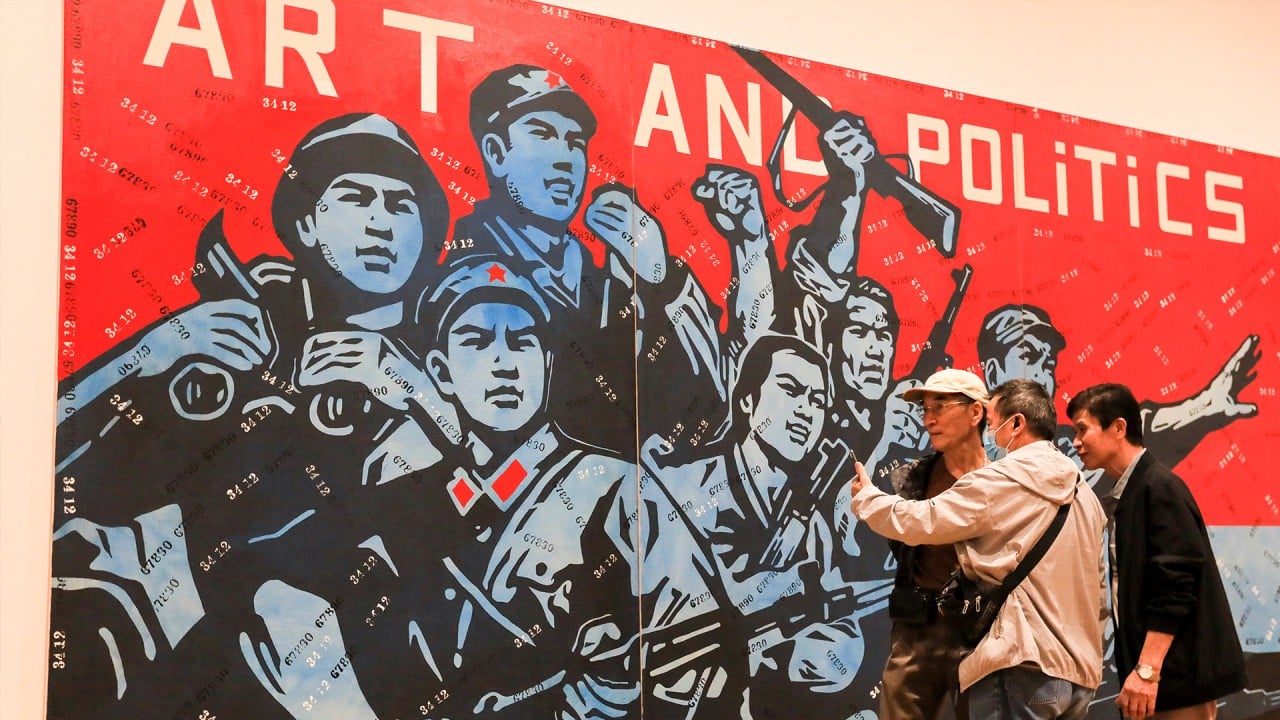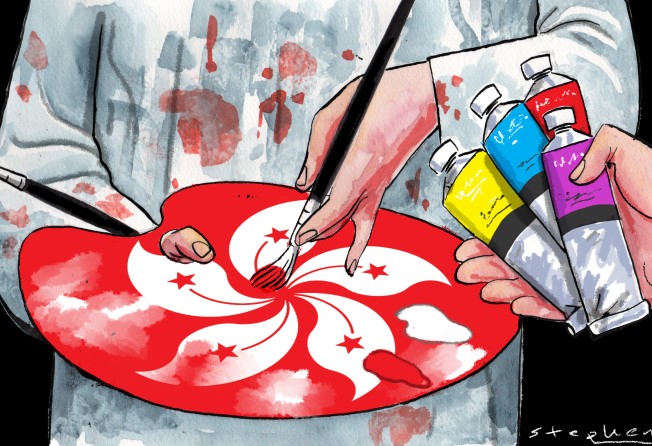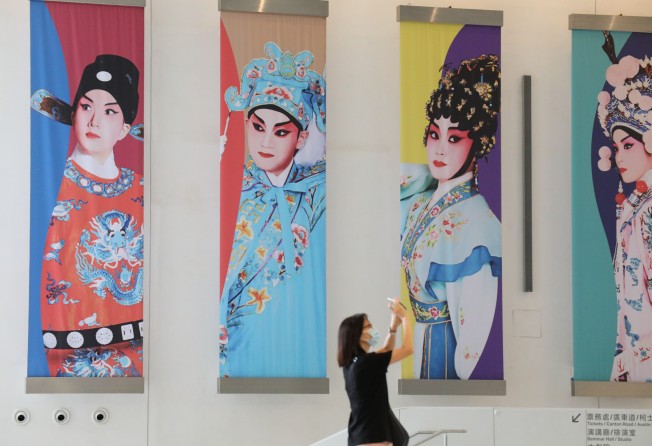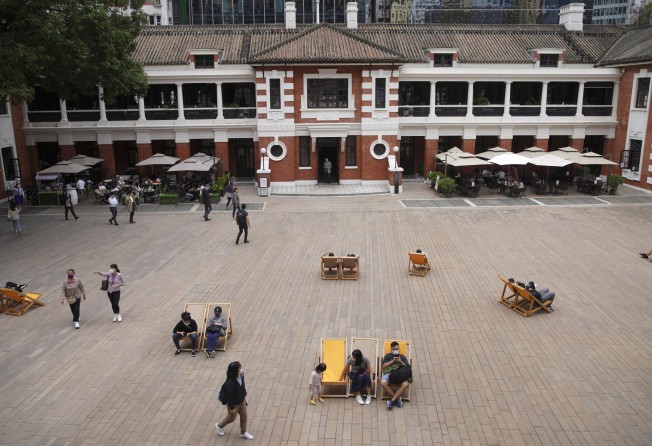
03:07
M+ contemporary art museum opens in Hong Kong

As Hong Kong emerges from some of the worst political upheaval it has seen in recent years and uncertainty looms over the cultural trajectory of the country, the opening of M+, the city’s museum of visual culture, is a historic moment for Hong Kong. For the first time in far too long, there is an Asian institution devoted to purely modern art, design, architecture and the moving image.
Early reviews have been predominantly positive. Many have praised the museum for its “impressive” range of works on display across 1,500 exhibits in 33 galleries and its “sensitively curated sections” dedicated to the full range of Asian cultural and aesthetic movements.
The few pro-establishment critics, as they do, have taken to lambasting the museum for displaying ostensibly politically inappropriate artwork, criticisms that have been deftly and swiftly addressed. Art is political but should not be subject to unhelpful politicking.
Given Hong Kong’s new-found positioning, as per the 14th five-year plan, as a cultural nexus for China and the world, M+ certainly plays a critical role in a possible, albeit challenging, path to the revival of the city’s fortunes. It is by no means enough, though.
More action is needed to channel Hong Kong’s unique culture and cultivate a new dimension to the city’s soft power in the region and beyond. More must be done in transforming Hong Kong’s arts and cultural scene into one that is truly egalitarian, inclusive and representative of the rich ideological and social currents undergirding the city.
First, we need a sustainable space for aspiring local artists and musicians to create art without fear of socioeconomic barriers that preclude them from pursuing their dreams.
Much has been said of the perils of self-censorship or that imposed by others, but a far more substantial barrier stands between most professional artists in Hong Kong and their aspirational careers. It is difficult to make a living out of creating art, especially art that neither conforms with the categories that constitute “highbrow” art nor plays to the appetite of the masses.
Local hip-hop artists, aspiring Chinese opera singers, modernist, minimalist painters, realist photographers and sketchers who fuse landscape and portrait styles – together they make dynamic, groundbreaking art that would enrich our city. Yet, they have been cut out because of a lack of sophisticated art market infrastructure and subsidies from the government and private sector alike.

Independent artists lack the space and networks to disseminate their works and promote awareness and understanding of their aesthetic world views.
Where have we ended up? A superficially heterogeneous, fundamentally monotonic cultural scene trending towards one single note. That strikes me as suboptimal, given the administration’s purview of championing our status as a regional art hub and Hongkongers’ quality of life.
Second, Cantonese culture, language and history deserve better. A core component of what makes Hong Kong what it is – a home cherished and celebrated by many – is its cultural and linguistic pluralism. The cornerstone to this all is Cantonese, the erudite-sounding yet colloquially emphatic language spoken by a large proportion of Hongkongers.
Yet Cantonese culture is more than just the language. It is also about our connections with the rest of southern China, our city’s history as the site where East meets West and the many-faceted Cantonese pop culture that arguably peaked in the 1980s and 1990s.
I was deeply moved by the attention to detail in the movie Anita, a moving tribute marked by sincere attempts at recreating an authentic, affectionate impression of Hong Kong from the 1960s through to the 2000s.
Recent restoration efforts of sites such as the State Theatre in North Point and Tai Kwun near Soho are testament to the fact that cultural preservation and respect are feasible even in Hong Kong, a city known for its skyscrapers and fixation on the modern.

From a standpoint of cultural policy, it is imperative that our administration devotes more resources to championing Cantonese culture and language. Rather than any undue political undertones or connotations, it must do so with the intent of maintaining a vital aspect of what makes Hong Kong so appealing to visitors, including many from the mainland who grew up consuming Cantonese films and listening to Canto-pop icons.
Finally, it is time we reflected upon how we should tell a distinctly “Hong Kong story”. For all the talk of “telling China’s stories well”, a critical element seems to have been omitted.
Hong Kong’s value – to its people, the country and the rest of the world – is that it offers an alternative version of “China’s story”, one that is more cosmopolitan, progressive and draws upon the best of both East and West. We are uniquely positioned to articulate a different side to the country’s story, one that complements the cultural vision projected by the mainland.
Hong Kong has always been more culturally autonomous and eclectic than the rest of the country, and this is a strength of ours. Our political establishment would benefit from recognising this fact and acting accordingly.
Hong Kong should seek to fill gaps and explore spheres of art untapped in the mainland, not merely replicate and mimic art from elsewhere. We should cultivate sufficient cultural confidence and both feel pride for and see room to organically evolve our own culture, not just wall it off.
I am proud of being a Hongkonger. I would be even prouder if this was a city that fully loves and respects what its artists from all walks of life have to offer.
Brian Y.S. Wong is a DPhil in Politics candidate at Balliol College, Oxford, a Rhodes Scholar (Hong Kong 2020) and the founding editor-in-chief of the Oxford Political Review